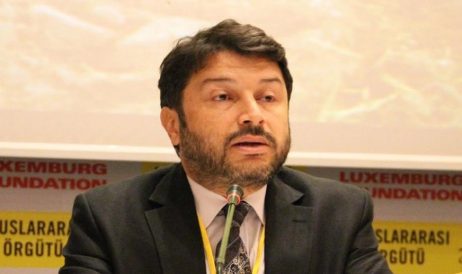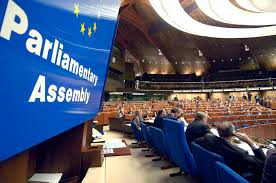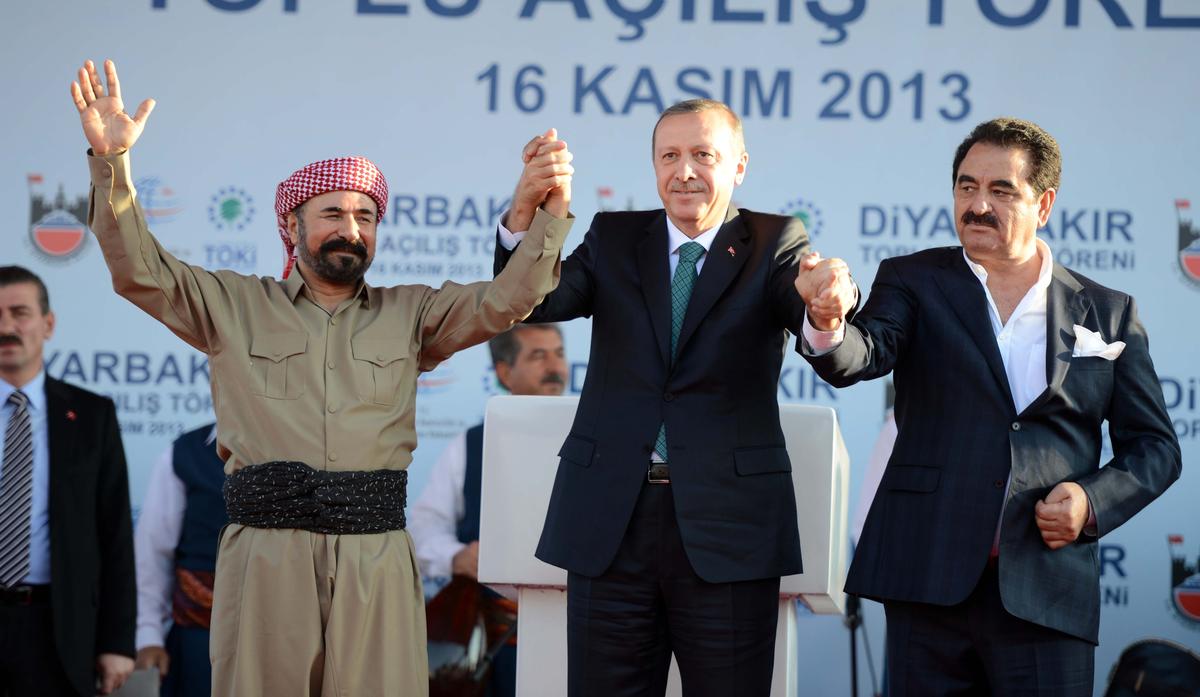[dropcap size=big]T[/dropcap]oday, Taner Kılıç has been deprived of his freedom for one year although there is no evidence against him. He is an innocent man and we’ll tell the world that we will not rest until he is free. His case is not unique, he is a symbol, an example of how the government is targeting human rights defenders and punish them for their work. It is obviously an attempt to silence those who speak out and take actions for all people unfairly jailed in Turkey.
Jenny Vanderlinden, Amnesty International Turkey Coordinator
Taner has become a potent symbol of the thousands of people unjustly jailed as part of the crackdown that has gripped Turkey since the failed coup in 2016.
Stefan Simanowitz, Amnesty International Media Coordinator
Taner Kılıç, the Chair of Amnesty International Turkey, was arrested on June 6th, 2017. As his house and office were searched, Kılıç was put in pre-trial detention at Şakran prison in Izmir. He became one of many people incarcerated in Turkey on baseless grounds, and as a prominent human rights defender his plight became symbolic. Several hearings, one promising release decision, one disappointing appeal, and countless calls justice later, it has been 365 days since Kılıç’s arrest. On the year anniversary of this egregious injustice, I outline Kılıç’s case, and what it represents for Turkey and his fellow colleagues.
Kılıç was arrested on accusations of using the messaging application ByLock. According to Turkish authorities, ByLock was the go-to communication software for FETO (the ‘terrorist’ name for followers of Fethullah Gulen) and was used to orchestrate the July 2016 coup attempt. In 2017, Turkish courts ruled that downloading ByLock was sufficient proof of ‘membership of a terrorist organisation’. Using a messaging application should never be considered a crime. Moreover, it has since been ruled that at least 11,480 people accused of downloading ByLock in fact never had; instead, they had been redirected to the ByLock server via other applications. In Kılıç’s case, four independent forensic analyses of his phone showed no evidence of him ever downloading it. Kılıç also refutes the accusation. Nonetheless, he has remained in detention after several hearings on his case.
On the 31st of January this year, after spending eight months in pre-trial detention, an Istanbul court ordered the conditional release of Kılıç. This was due to the independent forensic analyses in absence of any ByLock use evidence presented by authorities, despite the latter being requested repeatedly by the courts. Kılıç, his wife and three daughters, fellow Amnesty colleagues and people world over were ecstatic about his release, albeit being a belated one. But instead of being welcomed into the arms of his friends and family, Kılıç was taken to a nearby police station to spend the night. His release had been appealed by another court. By the following day, the appeal was accepted by the same court which ordered his release; Kılıç was to return to prison for the remainder of his trial.
This is the latest example of the crisis in Turkey’s justice system that is ruining lives and hollowing out the right to a fair trial. To have been granted release only to have the door to freedom so callously slammed in his face is devastating for Taner, his family and all who stand for justice in Turkey.
Salil Shetty, Amnesty International Secretary General
The baseless arrest of Taner Kılıç, and the savage blow of being released only for the court to overturn the decision, is reflective of Turkey’s broken justice system. Thousands of Turkish NGOs and human rights defenders have been persecuted in recent years, not to mention journalists, prosecutors and judges, and other citizens. Many release decisions have been reversed in the highly politicised courts. Kılıç’s circumstances are also exemplary of the calls for justice in a country where anybody can be held in lengthy detention without having committed a crime. Indeed, people around the world have called on Turkey to immediately release Kılıç, including United Nations experts and the Council of Europe.

Amnesty International itself is dedicated to obtaining Kılıç’s freedom, alongside that of other innocents in Turkey. They call on President Erdogan to remember that in 1998, Amnesty campaigned for his own release whilst as Mayor of Istanbul he was detained for a religious poem. In a cruel twist, Erdogan’s regime is now jailing members of this renowned organisation. Kılıç, symbolic of the lengths Turkey will go to in order to deflect criticism of rights abuses, could also be symbolic in release.
His release would be a signal that the government is stepping back on its crackdown on civil society under the state of emergency and that courts are able to take decisions based on evidence. His release would prove that the judiciary is resisting to extreme political pressure.
Jenny Vanderlinden, Amnesty International Turkey Coordinator
And Amnesty International, nor any other defenders of human rights in Turkey, will cease to call for justice. Many who are wrongfully imprisoned, including Kılıç, face the fear of becoming forgotten. But Turkey’s persecuted will not be forgotten.
After the failed coup, the authorities used the state of emergency as an excuse to silence civil society, dissidents, human rights defenders, lawyers, journalists and many other actors for a tweet, an article, a speech or simply for doing their job. We will not stop fighting for these people’s rights, never. And we’ll continue to show Taner Kılıç and other people that they will never be forgotten prisoners.
Jenny Vanderlinden, Amnesty International Turkey Coordinator
Kılıç’s next hearing is set for the 21st of June 2018. His case has been merged with that of the Istanbul 10; this is 10 other persecuted human rights defenders including Idil Eser, the Director of Amnesty International Turkey. If found guilty, Kılıç faces up to 15 years in prison. You too can ensure Kılıç knows he is not forgotten by sending him a message here, and by calling on Turkish authorities to immediately release him here.



